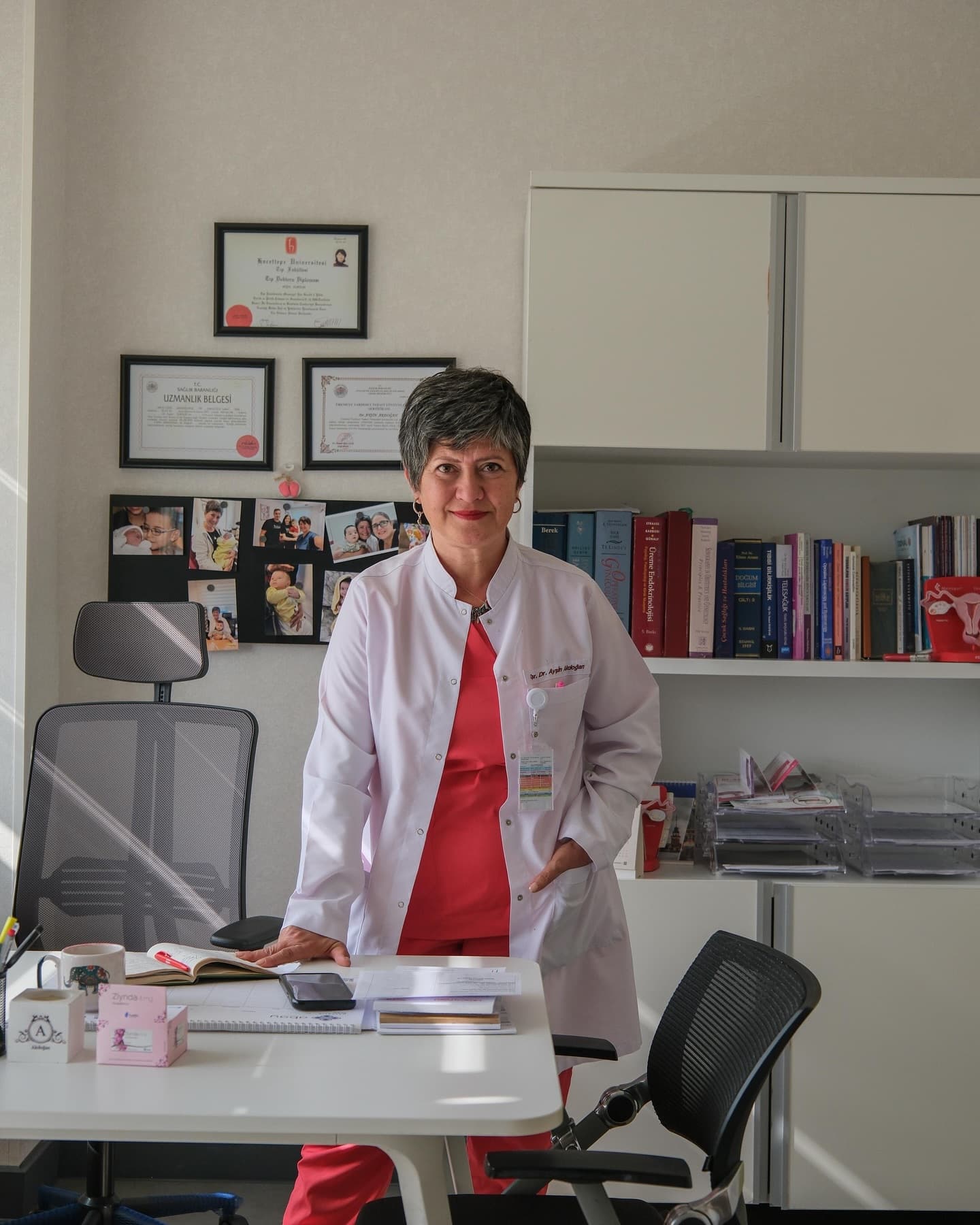
WOMEN'S HEALTH
Getting Pregnant with PCOS: Modern Treatment Approaches in Izmir
For many women, a diagnosis of Polycystic Ovary Syndrome (PCOS) can feel alarming, and it might seem like the end of your dreams of pregnancy. But that is simply not true. While PCOS is one of the most common hormonal disorders in women, it is also one of the most successfully treatable causes of infertility. Remember, this is not an end, but a new beginning with the right roadmap. At our clinic in Izmir, we are with you on this journey with modern, personalized treatment approaches.
What is PCOS and Why Does It Affect Pregnancy?
PCOS is essentially a condition of hormonal imbalance. This imbalance prevents the regular development and release of an egg from the ovaries (a process called ovulation). The fundamental requirement for pregnancy is simple: there must be an egg to be fertilized. When regular ovulation doesn't occur, pregnancy cannot happen naturally. This is the primary effect of PCOS on fertility.
The First Step in Treatment: Lifestyle Changes
In PCOS treatment, it is not always necessary to immediately turn to the most advanced technologies. Often, the most powerful first step is making positive changes to your lifestyle. Especially in PCOS cases linked to insulin resistance, a modest weight loss of just 5-10%, achieved through a low-glycemic index diet and regular exercise, can be enough to regulate menstrual cycles and trigger spontaneous ovulation. This is the stage where you have the most control.
Medical Treatments: Supporting Ovulation
When lifestyle changes are not enough, we use modern medical treatments to help induce ovulation.
Ovulation Induction (Follicle Development Treatment)
The ovaries are gently stimulated with simple oral medications (like Clomiphene Citrate or Letrozole) or low-dose injections. The goal of this treatment is to ensure the development of one or two healthy eggs each month. The process is always closely monitored with ultrasound.
Intrauterine Insemination (IUI)
After ovulation is successfully achieved, Intrauterine Insemination (IUI) can be used to further increase the chances of pregnancy. In this method, on the timed day of ovulation, the healthiest and most motile sperm are selected from the male partner's sample and placed directly into the uterus.
Advanced Treatment Option: In Vitro Fertilization (IVF)
If results are not achieved with ovulation induction and IUI, or if there are additional factors (like tubal issues or severe sperm problems), we then proceed to In Vitro Fertilization (IVF). Patients with PCOS typically respond very well to ovarian stimulation, and many eggs can often be retrieved. While this is an advantage, it is critical that the process is carefully managed by a specialist to prevent the risk of OHSS (Ovarian Hyperstimulation Syndrome).
PCOS Treatment in Izmir: Why a Personalized Approach is Key
Every PCOS patient is different. The success of the treatment depends on creating a personalized plan that suits your specific hormone profile, age, and goals, rather than a "one-size-fits-all" prescription. At our clinic in Izmir, our aim is to help you reach your pregnancy goal by starting with the simplest and most natural methods first, creating a personalized roadmap for you.
You are not alone on this journey. We welcome you to our clinic for a preliminary consultation to discuss your situation and the most suitable treatment options.
Frequently Asked Questions
Yes, you can. Many women with PCOS, especially those whose menstrual cycles become regular with weight control and lifestyle changes, can conceive naturally. It cannot be said that every PCOS patient will experience infertility.
No. The approach to PCOS treatment is stepwise. The first step is usually lifestyle changes, followed by ovulation-inducing drugs and insemination. IVF is an effective method used when results are not obtained with these simpler methods or when additional problems exist.
The medications used to stimulate ovulation (pills or injections) do not have a direct side effect of causing weight gain. PCOS itself can create challenges in weight management, but the treatments do not generally worsen this situation; on the contrary, they can help by restoring hormonal balance.
